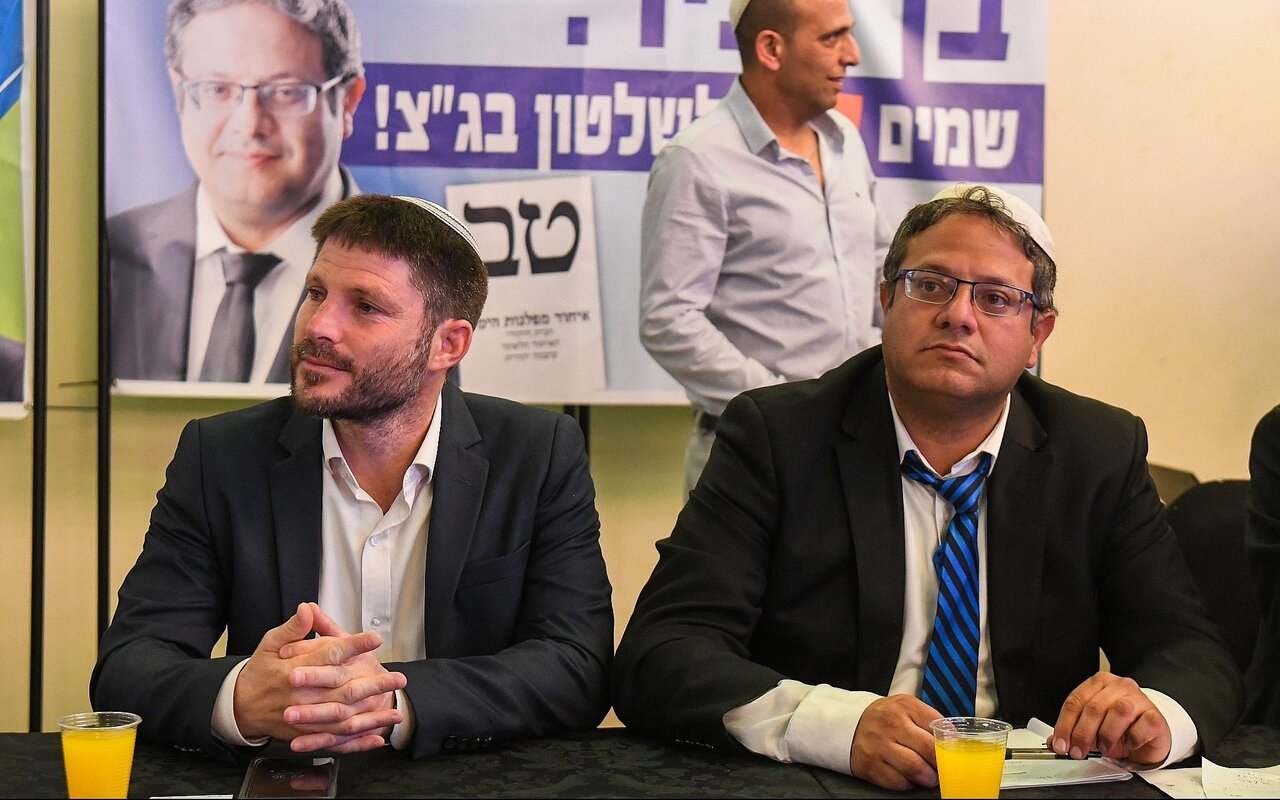Israeli ministers "banned" from sensitive info
Occupation regime facing a "leaking disaster"

TEHRAN- Israeli media has revealed that some ministers in the "Political-Security Cabinet" have been banned from receiving sensitive information that has been leaked amid the genocidal war on Gaza.
The regime's newspaper Israel Hayom, cited “major” sources as saying some of the classified information leaked in the past "exposed Israeli military operations and put soldiers’ lives in danger".
Experts have repeatedly pointed out that the tight media censorship on Israeli coverage of the war on Gaza can be used by Palestinian factions resisting the invading forces in the enclave.
Under this same context, the newspaper quoted an Israeli security source as saying that leaking secret material by some ministers "endangers security, instead of preserving it".
The paper cited the source who also said, "It's not just the leaks that endanger national security, but the fact that the cabinet cannot fulfill its role in times of war because of them.”
Sources pointed out that the exclusion of ministers from the "Political-Security Cabinet" meetings when secret information is shared raises the fear of these ministers making decisions "without being provided with the full briefing and its dimensions".
The news outlet also clarified the role entrusted to the "Political-Security Cabinet", indicating that it is tasked by the government to formulate policy on sensitive issues, especially in the fields of security and foreign relations.
According to the paper, the goal of this "Cabinet" is to be a small and secretive body, where in-depth discussions can take place, and decisions can be made on delicate matters.
The "Political-Security Cabinet" includes six permanent ministers: the Prime Minister, the Minister of Security, the Minister of Foreign Affairs, the Minister of Finance, the Minister of Justice, and the Minister of Internal Security, while additional ministers can be added to it, provided that their number does not exceed half the number of government ministers.
In the past, government leaders used to present sensitive decisions to the cabinet to expand the circle of consultations and responsibilities. There were also cases where sensitive consultations were conducted in other unofficial forums.
According to the newspaper, decisions made in these forums "had to be presented to the cabinet or the government for approval to become official."
In other cases, the cabinet allowed a small body to make decisions instead, aiming to streamline the process or maintain the secrecy of a specific operation's timing.
Israel Hayom noted that a prominent example of somebody sharing classified material that has been plaguing the cabinet was the "almost complete leak of details of a preemptive attack discussed on October 11 last year against Lebanon".
It said in some cases "this information exposed operational activities and soldiers on the ground to danger." In other cases, "secret intelligence information was revealed," the newspaper added.
The paper confirmed that Prime Minister Benjamin Netanyahu "is well aware of the leak problem," noting that heads of the security and military establishment have raised this issue with him several times.
Although Netanyahu "has indicated that he intends to take measures to identify those leaking secret information and promote legislation on this issue, his promises have not been translated into actions so far," the newspaper said.
The news outlet also revealed the Israeli prime minister "has rejected or diluted proposals to conduct lie detector tests for ministers, citing various reasons”.
The newspaper further noted that the issue of discussions in the cabinet and withholding information from ministers will be the focus of the investigation committee, which will probe the failures that led to the October 7 attack and the management of the war on Gaza.
Leave a Comment